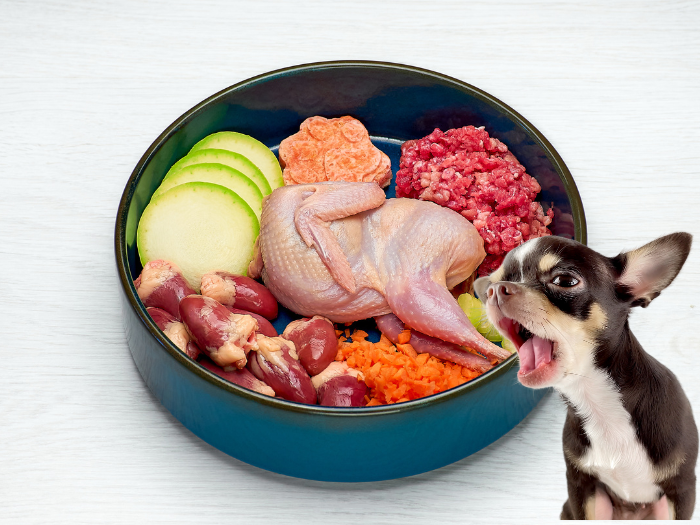
The Importance of Quality Ingredients in Homemade Dog Food
When preparing homemade dog food, using high-quality ingredients is crucial to provide optimal nutrition for your furry friend. Here’s why quality ingredients matter:
- Nutritional Value: High-quality ingredients offer better nutritional value, providing essential nutrients, vitamins, and minerals that contribute to your dog’s overall health.
- Digestibility: Quality ingredients are more easily digestible for dogs, reducing the risk of digestive issues and maximizing nutrient absorption.
- Allergies and Sensitivities: Dogs can have allergies or sensitivities to certain ingredients. Choosing quality ingredients helps minimize the risk of triggering adverse reactions.
Protein Sources for Homemade Dog Food
Protein is an essential component of a dog’s diet. When selecting protein sources for homemade dog food, consider the following options:
- Lean Meats: Choose lean cuts of meat such as chicken, turkey, beef, or lamb. Remove excess fat and skin before cooking.
- Fish: Incorporate fish like salmon, mackerel, or sardines, which are rich in omega-3 fatty acids that promote healthy skin and coat.
- Eggs: Eggs are an excellent source of easily digestible protein. Ensure they are fully cooked to avoid the risk of salmonella.
- Plant-Based Proteins: If your dog has specific dietary restrictions, consider plant-based protein sources such as lentils, quinoa, or tofu.
Healthy Carbohydrates for Homemade Dog Food
Carbohydrates provide energy and fiber in a dog’s diet. Include these healthy carbohydrate sources in your homemade dog food recipes:
- Whole Grains: Opt for whole grains like brown rice, quinoa, oats, and barley. They provide fiber and essential nutrients.
- Vegetables: Incorporate dog-safe vegetables such as sweet potatoes, peas, carrots, and green beans. They offer vitamins, minerals, and fiber.
- Fruits: Certain fruits like apples, blueberries, and bananas can be added in moderation to provide natural sweetness and additional nutrients.
Beneficial Fats for Homemade Dog Food
Including healthy fats in your dog’s diet is essential for various bodily functions. Consider these beneficial fat sources:
- Fish Oil: Rich in omega-3 fatty acids, fish oil supports brain health, reduces inflammation, and promotes a shiny coat.
- Flaxseed Oil: Flaxseed oil is a plant-based source of omega-3 fatty acids that can benefit dogs with allergies or sensitivities to fish.
- Olive Oil: Olive oil contains monounsaturated fats that contribute to heart health and can enhance the taste of homemade dog food.
Additional Nutrient-Rich Ingredients
In addition to protein, carbohydrates, and fats, there are other nutrient-rich ingredients you can include in homemade dog food:
- Calcium: Incorporate calcium sources such as plain yogurt, cottage cheese, or ground eggshells to support bone health.
- Supplements: Consult with your veterinarian to determine if your dog requires any additional supplements, such as multivitamins or joint support supplements.
Balancing Nutrients in Homemade Dog Food
To ensure a balanced diet for your dog, it’s crucial to understand the right proportions of ingredients. Consider consulting with a veterinarian or veterinary nutritionist to create a balanced recipe that meets your dog’s specific needs.
By incorporating these best ingredients into your homemade dog food recipes, you can provide your furry companion with a nutritious and delicious diet that supports their overall well-being.
Remember to introduce new ingredients gradually, monitor your dog’s response to the food, and consult with a veterinarian if you have any concerns or questions.
